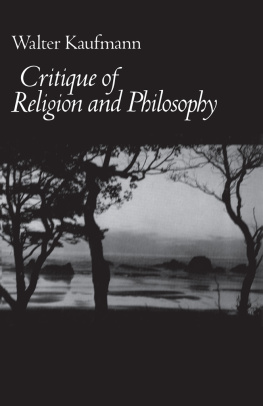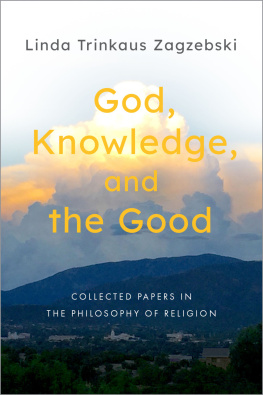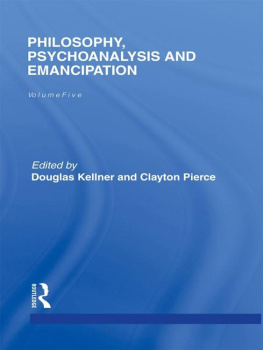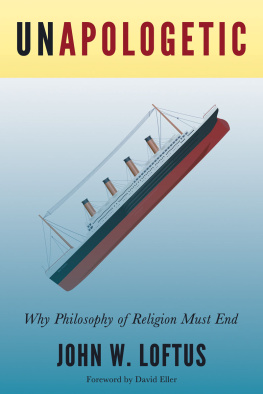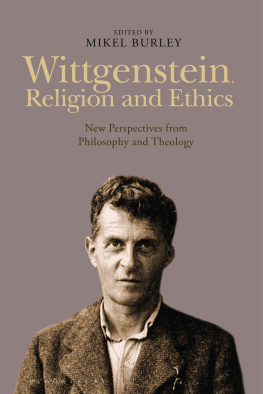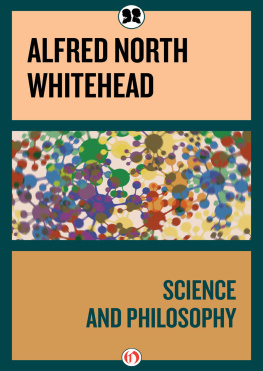RUSH RHEES ON RELIGION AND PHILOSOPHY
Cambridge University Press, 1997
REAL AUTHOR: Rush Rhees EDITOR: D. Z. Phillips, University of Wales, Swansea and Claremont Graduate School, California DATE PUBLISHED: July 1997 AVAILABILITY: Unavailable - out of print June 2003 FORMAT: Hardback ISBN: 9780521564106
Table of Contents
Acknowledgements Introduction
Part I. Religion and Reality: 1. Religion and philosophy 2. Where does the world come from? 3. The ontological argument and proof 4. Remarks on reality and religion 5. Natural theology 6. Religion and language 7. Belief in God 8. Wittgenstein on language and ritual 9. Religious practices 10. Notes on religion and reductionism 11. The divide between religion and scientific method 12. Difficulties in belief
Part II. Religion, Life, and Meaning: 13. Gratitude and ingratitude for existence 14. Religion, life and meaning: A and B 15. Death and immortality 16. Election and judgment 17. That man is made for heaven
Part III. Religion and Morality: 18. Living with oneself 19. The sinner and sin 20. The Church and the moral law 21. Suffering 22. Picking and choosing
Part IV. Reflection on Christianity: 23. Miracles 24. Mescaline, mysticism, and religious experience 25. Difficulties with Christianity 26. Christianity and growth of understanding
Rush Rhees is perhaps best known as a pupil and close friend of Ludwig Wittgenstein. He edited many of Wittgensteins works and was one of his literary executors. Rhees, however, was also a very fine philosopher in his own right. While some of his own published papers became classics, most of his work remained unpublished during his lifetime. After his death in 1989, his literary estate was found to comprise sixteen thou- sand pages of manuscript covering subjects as varied as Greek philosophy, philosophical logic, philosophy of mathe- matics, moral philosophy, philosophy of religion, aesthetics, Wittgenstein and Simone Weil.
The papers collected here, edited by Professor D. Z. Phillips after Rhees death in 1989, include Rhees outstanding work on philosophy and religion. Written over an academic life- time, some of the papers are sympathetic to religion, while others are not. In them, Rhees asks what kind of reality can be found in religious belief, and how that reality relates to the meaning of our lives, to the moral experiences we think important.
His readiness to leave what is ragged ragged, and his refusal to say more than we know, are impressive features of Rhees investigations, in which the personal and philo- sophical are interwoven in fascinating ways. The result is an integrity, intellectual honesty and nakedness of style which never strives for effect, making this collection one of the most impressive in twentieth-century philosophy of religion.
RUSH RHEES ON RELIGION AND PHILOSOPHY
Acknowledgements
I acknowledge the help 1 have received from my assistant editor, Mario von der Ruhr. He is responsible for translating most of the French and German quotations, and for tracing those references along with many others. 1 am grateful also to our colleagues Catherine Osborne and Timothy Tessin for assistance with references and for Ievan Lloyds and Timothy Tessins help with proof-reading. I am also grateful to Mrs Helen Baldwin for preparing the typescripts for publication.
Of the twentyssix papers in the collection only four have been published previously, Where Does the World Come From Natural Theology and Religion and Language all appeared in Rush Rhees, Without Answers, ed. D. Z. Phillips (London: Routledge, 1969). Wittgenstein on Language and Ritual appeared in Ewan on Wittgenstetn in honour of G. H. von Wright, ed. J. Hintikka, Acta Philasophica Fenwica, 28, 2-3 (Amsterdam: North-Holland), reprinted in Wittgenstein and His Times, ed, B. McGuinness (Oxford: Blackwell, 1982). We are grateful for permission to reprint these papers here.
Introduction
Rush Rhees (1905-1989) was a remarkable person. He was a pupil and a close friend of Ludwig Wittgenstein. Rhees edited many of Wittgensteins works and was one of his literary executors. In his biography of Wittgenstein, Ray Monk refers to Rhees incomparable knowledge of Wittgensteins work. [Ed. - ! Ray Monk, Ludwig Wittgenstein: The Duty of Genius (London: Vintage, 1991), p. xii.] Some of Rhees published papers became classics: for example, his contribution to a symposium with A. J. Ayer on Can There be a Private Language?, and his paper, Wittgensteins Builders. Most of his work, however, remained unpublished during his lifetime. The Rush Rhees Archive at the University of Wales, Swansea, contains work by him on every aspect of philosophy. For him, philosophy was one subject, not a collection of specialisms.
In this introduction, I hope to provide a brief glimpse of Rhees background and of the style which made him so distinctive as a person and as a philosopher.
Rush Rhees great-great grandfather, Morgan John Rhys (1760-1804), was a Welsh radical preacher and pamphleteer who wrote tracts on the abolition of slavery, the disestablishment of the Church, and other reforms he thought desirable. He was prominent in promoting free elementary Sunday schools at which the illiterate poor were taught to read and write.
In 1791, wanting to witness the fruits of the French Revolution at first hand, he went to Paris with an American officer, Major Benjamin Loxley of Philadelphia. During the political upheaval which followed the Revolution, Rhys, fearing arrest, fled to America in 1794.
In America, Rhys married Loxleys daughter, Anne, a powerful supporter of all his future endeavours. After emigration, the family surname changed to Rhees. In 1796, along with eminent Philadelphians, Rhees organized the Philadelphia Society for Information and Assistance of Persons Emigrating from Foreign Countries.
He became acquainted with the philantrophist Benjamin Rush, a signatory of the American Declaration of Independence. Rush helped Rhees in founding a Welsh colony. Such was the latters gratitude and admiration, he named his second son Benjamin Rush Rhees.
The distinguished history of the Rhees family is to be found in Rhees of Rochester by John Rothwell Slater. The book concentrates on Rush Rhees father, sometime Professor of New Testament Interpretation at Newton Theological Institute who, in 1899 became President of Rochester University. This is not the place to speak of President Rhees distinguished term of office, marked by his remarkable collaboration with the Universitys chief bene- factor, George Eastman. The Rush Rhees Library stands a memorial to his achievements.
Rush Rhees, author of the papers in this collection, was born on 19 March 1905 in Rochester, New York. He attended Choate School in Wallingford, Connecticut. From there he went to Rochester University in 1922, where he studied for two years.
His stay there was not a happy one. In his book, A History of University of Rochester 1850-1962, Arthur May writes that Rhees sudden departure from the university was due to
> a head-on clash between Professor George M. Forbes and Rush Rhees Jr, Class of 1926, younger son of the President: Radicalism of Rochester Presidents Son Causes Professor to Bar Youth from Class read a startling front-page headline in the New York Times.
> The accompanying story related that Rhees, a youth of advanced ideas, had been dropped from a philosophy class because he presumed to refute everything Forbes taught and was guilty of shallow thinking and inordinate conceit. Professing allegiance to anarchism, Rhees was quoted as saying, I am radical. Dr Forbes is not. That is why I am debarred From a Puritan I have revolted into an atheist.
> Certain undergraduates reproached Forbes on the ground that the expulsion of Rhees violated the principle of independence of thought. President Rhees was abroad at the time of the expulsion on campus, and his biographer is wholly silent on his reaction to this bizarre incident.
Next page

